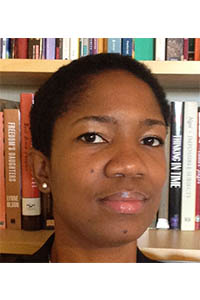In just two weeks, we’ll be kicking off the big day of THATCamp New Souths 2018! After Friday afternoon workshops and an evening social, we’ll be starting at Cabell Library, Room 303. The doors to the building open at 9:00, we’ll have breakfast laid out for you to consume while you chat and vote (dotmocracy-style) on sessions, and at 10:00 we’ll get started. After a few brief words of welcome from organizers, you’ll get to hear from Nicole Myers Turner.
 Dr. Turner will share with us a bit about her research and its digital sources and inflection in “Processes of Power: Digital Maps, Race, Place and Religion in the South.” In keeping with the character of an unconference, think more “inspiration session” than “keynote.” What can we do with the intersection of technology and the humanities? As a member of VCU’s History department, her scholarship is an outstanding example of new takes on the South. Among other things, she uses geospatial/GIS approaches in her work on black churches, political participation, and education in the late 19th century, the topic of her forthcoming monograph.
Dr. Turner will share with us a bit about her research and its digital sources and inflection in “Processes of Power: Digital Maps, Race, Place and Religion in the South.” In keeping with the character of an unconference, think more “inspiration session” than “keynote.” What can we do with the intersection of technology and the humanities? As a member of VCU’s History department, her scholarship is an outstanding example of new takes on the South. Among other things, she uses geospatial/GIS approaches in her work on black churches, political participation, and education in the late 19th century, the topic of her forthcoming monograph.
Dr. Turner’s work explores how Virginia’s free and freed people used their churches, conventions and religious educational institutions to define political strategies, gender roles and community membership. The study delves deeply into the limited but extant records of black religious institutions and incorporates GIS mapping techniques to visualize the church and political networks that supported black participation in electoral politics. Through this local study, that incorporates examination of election data, church membership records, and religious networks she offers a social and political history of late-nineteenth century black religion. Her other research and teaching interests include African American religious history, black transnational religious and political networks, women and gender in history. She teaches courses that explore the intersections of race, gender and class in the African American experience including the African American history survey, and courses on Jim Crow America. She is also interested in the growth and potential of digital humanities for expanding the explanatory power of historical research.



